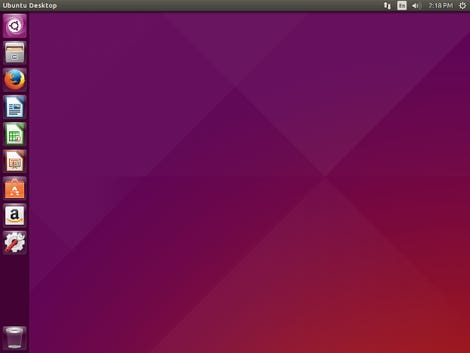Remember. 2004 has already been an eventful year for Linux. SCO was trying to drive Linux out of the market, Red Hat was abandoning enterprise Linux users by shutting down Red Hat Linux 9 and releasing Red Hat Enterprise Linux (RHEL). Oh, and South African tech millionaire (and astronaut) Mark Shuttleworth was launching Canonical, the parent company of Ubuntu Linux.
I had no idea – nor did anyone else – that Canonical would become one of the leading Linux companies in the world.
Shuttleworth had made millions by founding and then selling Thawte Consulting, a company specializing in security and certification. And his interest was not limited to making money. Shuttleworth was also a developer of Debian Linux. With the proceeds from the sale of Thawte, he founded Canonical in the United Kingdom.
Support and share free software and open source software
From the beginning, Canonical’s goal has been to support and share free and open source software. Indeed, the name of its flagship operating system, Ubuntu, comes from the Zulu phrase “Umuntu ngumuntu ngabantu”. Its modern meaning, outside of Linux circles, comes from the late Archbishop Desmond Tutu. In his book he says that someone who is Ubuntu is “open and available to others, affirming others.”
Does this remind you of something ? When Shuttleworth announced the release of the first version of Ubuntu — Ubuntu 4.10 Warty Warthog — he wrote:
“Ubuntu” is an ancient African word meaning “humanity towards others”, and we think it’s a perfect name for an open source community project. With this in mind, we invite you to join us, contribute, and share Ubuntu with your own community.
In short, as the original Ubuntu motto said, “Linux for humans.”
Compete with proprietary operating systems
Then, as now, Ubuntu was based on Debian Linux. Unlike Debian, which never met a single delivery deadline, Ubuntu was designed to be updated with a new version every six months. And Canonical has respected this cadence – with the exception of the Ubuntu 6.06 version – for 20 years now.
From the start, Canonical’s mission was bold: to create an operating system as feature-rich, user-friendly and accessible as its proprietary counterparts. Launched in October 2004, Ubuntu Linux quickly became synonymous with ease of use, stability and security, bridging the gap between the power of Linux and the ease of use demanded by end users.
Canonical’s early years were marked by rapid innovation and community building. The Ubuntu community, a vibrant and passionate group of developers and users, has become the heart and soul of the project. Forums, wikis, and IRC channels were buzzing with activity as people from around the world came together to contribute code, report bugs, write documentation, and help each other.
The Unity adventure
Over the years, this community-centered approach has changed. Although Ubuntu is still an end-user friendly distribution – it’s the only Linux distribution from a major vendor that still strongly supports desktop Linux (to keep the lights on) – Ubuntu is used more now as a desktop system. exploitation for cloud, servers and Internet of Things (IoT).
Canonical has also tried, with mixed success, to influence the trajectory of Linux. In 2011, for example, Canonical introduced Unity, a new Linux desktop, as its default desktop. The idea was to create a GUI usable not only for the Linux desktop, but also for smartphones and tablets.

For four years, Unity has made Ubuntu simple enough for a child to use. Click on the app and off you go. Screenshot by Steven Vaughan-Nichols/ZDNET
I really liked Unity, but I was one of the few who liked it. In 2017, Canonical discontinued Unity and its related projects for Ubuntu-powered smartphones and tablets. Although Ubuntu Unity lives on – open-source projects have nine lives – it is now a sideline. Ubuntu has renewed its commitment to the GNOME desktop.
From Unity to Snap
2016 saw the emergence of Ubuntu Snap, a containerized way of installing software, which – along with rival Red Hat Flatpak – is helping Linux gain popularity on the desktop. Both solutions make it easier for software companies to provide programs for the Linux desktop, while giving users a greater choice of applications.
Canonical’s influence extends beyond the desktop. Ubuntu Linux, for example, is the most widely used cloud operating system.
In the future, I think Canonical will eventually go public. But unlike a technology company, Canonical does not need to go public. Shuttleworth managed to self-finance the business. As Shuttleworth said in a 2022 interview, Canonical doesn’t need the money. Rather, the company is “trying to find the balance between preserving what people really love about Ubuntu and Canonical and continuing the responsibilities we now have in the global technology market.”
Today, as Canonical celebrates its 20th anniversary, Ubuntu Linux powers millions of desktops, servers and clouds. Canonical’s adventure is far from over. I expect its next 20 years to be as innovative and successful as its first two decades.
Source: “ZDNet.com”
